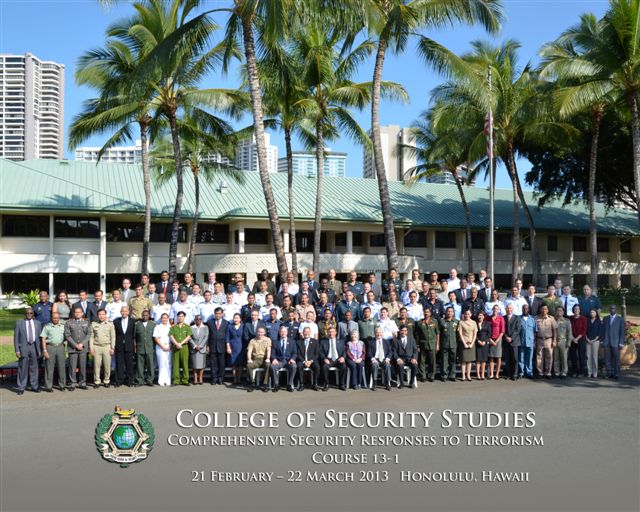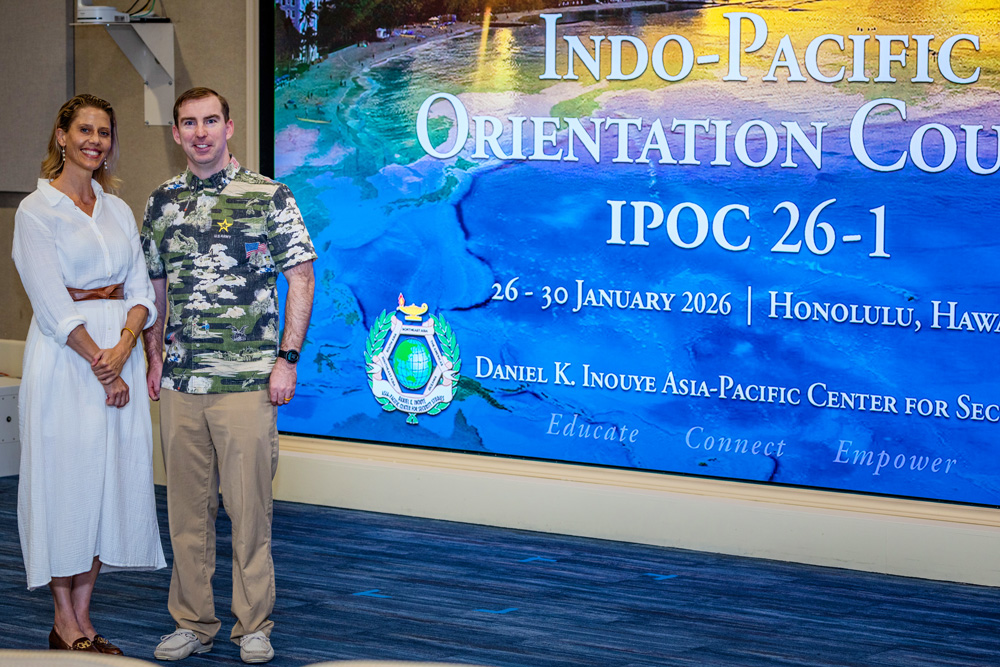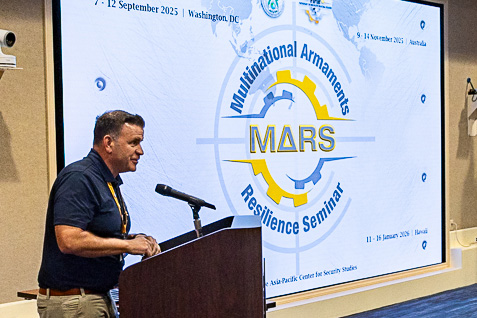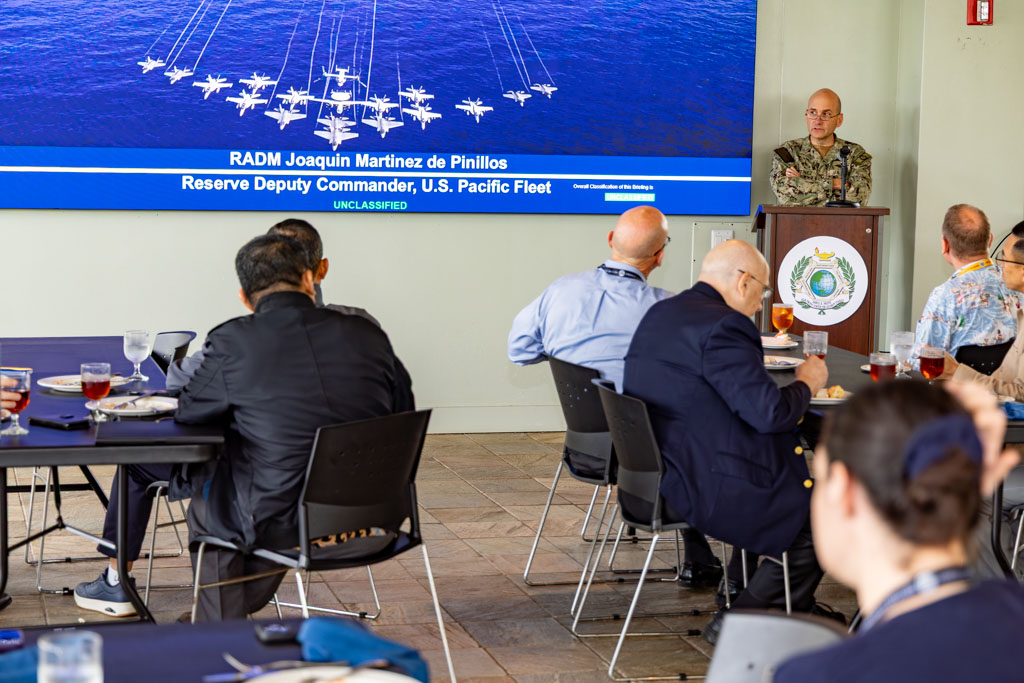 Eighty-five Fellows from 40 locations graduated today from the Asia-Pacific Center for Security Studies’ Comprehensive Security Responses to Terrorism (CSRT) Course in Honolulu. Of the 85 participants, 70% were from military organizations with others representing law enforcement, intelligence, foreign affairs, state owned infrastructure operators, and the United Nations. Three-fifths were from the Asia-Pacific region, with five continents participating in the course.
Eighty-five Fellows from 40 locations graduated today from the Asia-Pacific Center for Security Studies’ Comprehensive Security Responses to Terrorism (CSRT) Course in Honolulu. Of the 85 participants, 70% were from military organizations with others representing law enforcement, intelligence, foreign affairs, state owned infrastructure operators, and the United Nations. Three-fifths were from the Asia-Pacific region, with five continents participating in the course.
Fellows participating in CSRT were from Afghanistan, Bangladesh, Belize, Brazil, Bulgaria, Cambodia, Canada, China, Colombia, Djibouti, Dominican Republic, Fiji, Guyana, India, Indonesia, Jordan, Kenya, Kiribati, Laos, Lebanon, Malaysia, Maldives, Mauritius, Mongolia, Mozambique and Nepal. They also came from Oman, Papua New Guinea, Philippines, Samoa, South Korea, Sri Lanka, Taiwan, Tanzania, Thailand, Tonga, Turkey, United Nations, United States, Vietnam and Yemen.
The course was divided into four modules. The first, Introduction to Combating Terrorism, examined the origins, definitions, and significance of the problem. It also forced fellows to think critically about their sources of information and ways of thinking to drive them to a greater understanding of the problem. The second module, Security Governance, was a multi-faceted study of effective security governance that first worked to define it as a goal and then examined both components of it and challenges to it. The course then transitioned into Interpreting the Environment, which an emphasis on understanding the drivers of terrorism and ways to counter-act those forces. The final module, Cooperation, began with a negotiations and communications exercise and then showed how the materials of the previous modules could be most effectively applied through both internal and international collaboration. Throughout the course, Fellows participated in daily seminar discussions of the material to provide a robust, interactive capstone experience. They also worked with the other course Fellows from within their regions, in some cases breaching national rivalries, to first better understand the biases that drive decision making in their cultures and later to examine future trends in their regions and the best means to collaborate to mitigate the coming challenges.
The Comprehensive Security Responses to Terrorism Course provides key states in the Asia-Pacific region and other designated countries, the operational and strategic-level skills necessary to enhance their ability to combat terrorism while cooperating with other regional nations. It is also designed to build relation-ships between and among the United States and current and future counterterrorism practitioners of participating countries, develop the trust and confidence necessary for increased information sharing, and identify ways to reduce obstacles to cooperation in the international struggle against those who use terror to promote their goals.
The Asia-Pacific Center for Security Studies is a Department of Defense academic institute that addresses regional and global security issues. Military and civilian representatives, most from the U.S. and Asia-Pacific nations, participate in a comprehensive program of executive education, professional exchanges and outreach events, both in Hawaii and throughout the Asia-Pacific region. The Center supports the U.S. Pacific Command by developing and sustaining relationships among security practitioners and national security establishments throughout the region. APCSS’ mission is to build capacities and communities of interest by educating, connecting, and empowering security practitioners to advance Asia-Pacific security. It is one of the Department of Defense’s five regional security studies centers. Since opening in 1995, the Center has had representatives from 104 countries and territories attend courses at the Center for a total of 7,340 alumni.
-END-









combat terrorism is our big security challenges today therefore I would like to congratulate each and everyone who have attended the CSRT 13-1 for the job well done.